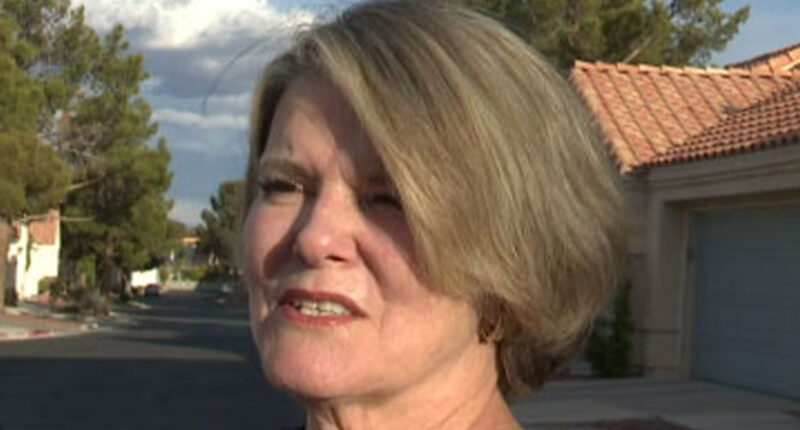Homeowners in a neighborhood in Henderson, Nevada, have received bills of almost $17,000 each from their Homeowners Association (HOA) to cover the costs of repairing a sinking street, despite the fact that they are not responsible for the damage.
The residents are worried that they will have to spend many years to settle the substantial fines that have been enforced by the HOA.



The reason for this charge is linked to a deteriorating water system beneath a gated community located in Henderson, Nevada, which is only sixteen miles away from Las Vegas.
Residents at Renaissance Townhomes say the problem has been building for years, but now they are being told they have to pay up.
A letter from their HOA board states that the cost to replace 73 lateral waterlines is over $1.3 million.
That breaks down to $16,879 per home, with payments split into four $4,220 instalments, reported ABC local affiliate KTNV.
The HOA says the money is needed to replace the aging pipes and stop worsening leaks underground.
But residents say they are stunned and can’t afford it.
“I’m certainly not,” said Debbie Grim, who’s lived there for eight years.
“I was looking into a HELOC, which is basically telling me that I’m going to be working until I’m 85.”
Grim shared photos showing a gushing water leak outside her driveway shortly after she moved in.
She said it was practically a sinkhole and she almost drove into.
Neighbor Lance Oslund said the ground is literally shifting under his feet.
“Five years ago, this was not like this. It’s sinking down in here somewhere,” Oslund added.
Resident say temporary fixes have been made over the years, but the full replacement was never tackled.
Now the HOA board says it doesn’t have enough in reserves to cover the cost so the bill is being passed on.
HOA crackdowns in the US
States across the country are working to restrict the power of HOAs.
- In Minnesota, lawmakers introduced a bill that would require HOA boards to create a schedule of fines and fees and distribute it to homeowners; ensure homeowners can contest an HOA fine; provide reasonable time to correct rule violations; and outlaw the practice of charging homeowners for asking questions.
- In Arizona, lawmakers are cracking down on HOA budgets. Under a newly proposed law, HOA boards would have strict guidelines for how they approve expenses.
- In Florida, a bill was passed that restricts the amount of control HOAs have over tenants’ property. It also stops HOAs from fining homeowners for leaving trash cans out and holiday lights up.
- In Atlanta, bipartisan bills were introduced to reign in overly aggressive HOAs to protect homeowners.
- In California, a new bill requires HOA elections to be monitored and the board to comply with certain homeowner requests.
- In Colorado, new HOA rules require greater transparency between HOA board members and tenants.
- And the Federal Fair Housing Act sets housing standards for all homeowners, tenants, and landlords.
That’s on top of a $450 monthly HOA fee, which Oslund says has jumped by $200 since he moved in five years ago.
Oslund said that landscaping has deteriorated, houses have not been painted, and other repairs have not been made.
The special assessment would only go into effect if approved by a majority homeowner vote, accordingly to the March 28 letter.
Residents say the entire HOA board plans to step down at the next meeting on April 17, leaving the future of the fee unclear.
Many of the homeowners are elderly or disabled and fear they simply won’t be able to cover the cost.
“We have people who’ve lived here 30 years and they were counting on this being their home,” Grim said.
Colonial Property Management didn’t immediately respond to a request for comment by The U.S. Sun.


PUSH FOR BILL
A similar situation unfolded six miles away at Somerset Park, where leaking pipes and sinkholes put residents at risk of losing their homes.
In that case, the City of Henderson stepped in and helped repair the water system at a lower cost, now being repaid through a tax lien.
But officials say the Renaissance case doesn’t meet the same threshold.
“The City has limitations when it comes to intervening in matters related to private infrastructure,” Mayor Michelle Romero said in a statement.
Lawmakers are now working on bills that could help future communities avoid this kind of financial blow.
One, AB10, would allow local governments to intervene earlier in private utility failures.
State Senator Carrie Ann Buck is also backing three bills to improve HOA accountability and homeowner rights.
But even if passed, they likely won’t come soon enough for Renaissance Townhomes.

















